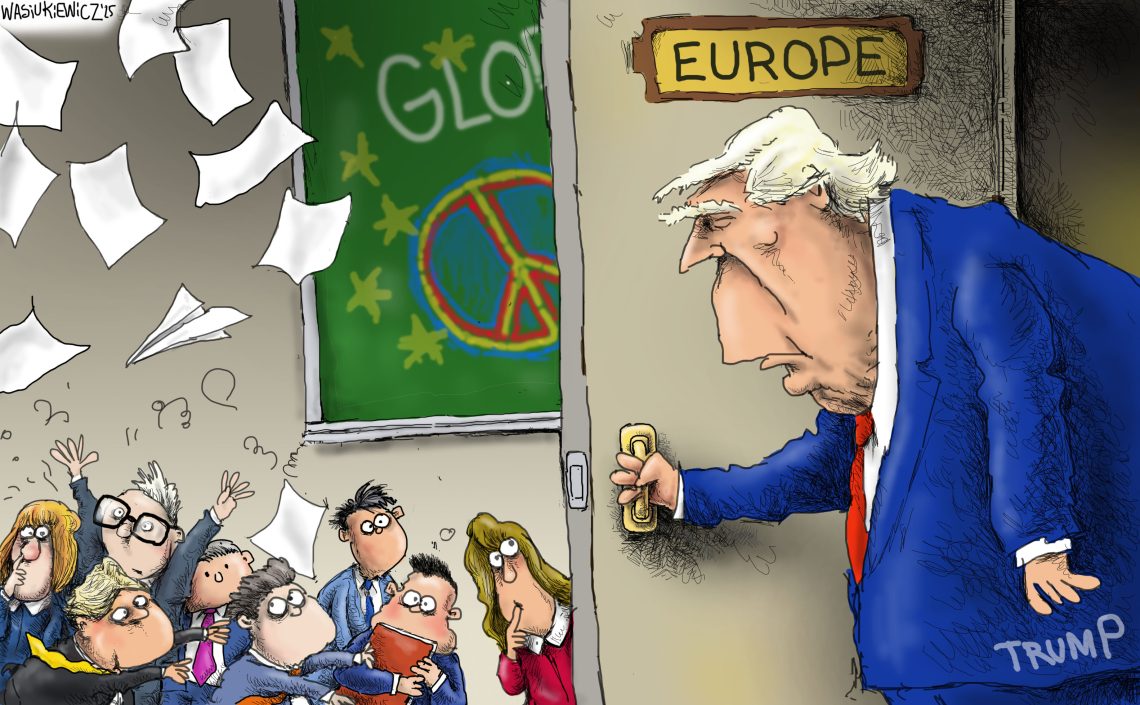Europe’s leadership conundrum
If European leaders continue to lack courage and determination, others will decide the continent’s fate.

After having achieved progress in the Gaza conflict, United States President Donald Trump again intends to resolve the issue of war in Ukraine and the U.S. relationship with Russia.
Now some 10 months in office, we can see that the White House has a fairly clear long-term strategy camouflaged in more erratic tactical maneuvers. This goes for domestic, economic and international affairs. President Trump wants to achieve his goals.
When we look at the meeting on Gaza in Sharm el-Sheikh, we see the clear discrepancy between European and American leadership. The European leaders appeared rather like schoolboys wanting to be recognized by the teacher, rather than decision-makers. They lack power, but also a convincing strategy.
The unvarnished truth
We have a leadership problem in Europe. This appears not only in international politics such as Ukraine, Gaza or European security, but also in competitiveness in general, as well as in internal and economic matters. The security and prosperity of the continent’s citizens are challenged. The three largest European countries, Germany, France and the United Kingdom, now have governments which show their dysfunction every day – this is mirrored by the European Commission.
On a national level, the governance problem is as follows: The established parties cling desperately to power on one hand, and on the other, they opt to promote party soldiers and block those who demonstrate leadership and have fresh ideas.
Instead of clinging to antiquated, inefficient and nepotistic power structures, political parties should completely rethink their views of governance.
Parliaments consist mainly of career politicians, lacking practical or business experience. This also has the consequence that they personally need reelection. The politicians will therefore deliver populist party policies with the danger of a loss of responsibility. Furthermore, we can see that parliaments betray their role of defending people’s interest against the state and citizens’ personal freedoms against an invasive bureaucracy. The vital role of enforcing a balanced budget, controlling expenses and limiting taxes is ignored.
In consequence, no courageous decisions can be expected as we look for people to solve our problems in the very same group of those who created the problems. But this is also the problem of the European Union, because the commission is composed precisely of those governments and people who are the soldiers of the political parties.
Citizens yearn for leadership
Politics, which should actually be an art undertaken by talented and courageous people, has sunk into bureaucratic mediocrity. What is the result? Europe is losing on the global competitive landscape, jeopardizing its own security and prosperity.
Read more by GIS founder Prince Michael of Liechtenstein
- Ukraine needs support now
- The old developed world is in denial
- Productivity and innovation: Europe’s wasted opportunity
We can also see that the fate of Ukraine will not be decided in Kyiv with the support of the European powers, but only between Washington and Moscow.
Instead of clinging to antiquated, inefficient and nepotistic power structures, political parties should completely rethink their views of governance. Nevertheless, this might remain just a theory or naive wishful thinking.
The more realistic scenario would rather be that rightfully frustrated citizens will finally look for new movements, which they consider more fit to address the problems jeopardizing their security and prosperity.

